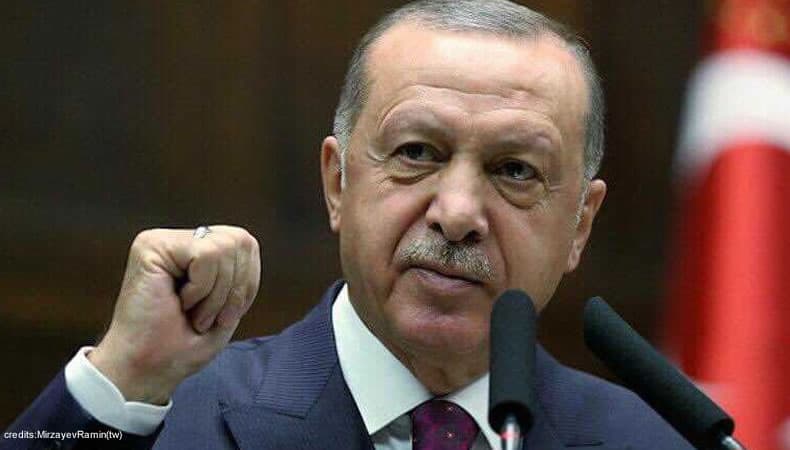The Turkish economy is stopping Erdogan

Turkish President Recep Tayyip Erdogan is making the biggest disaster a president has ever wrought to date. Both from a geopolitical point of view and internally, the sultan’s policies are making water on all sides. Last week, Turkey released the expected inflation data, where the trend growth in September prices remained substantially stable at 11.75%. A slight acceleration was expected, so the market took it well.
The Turkish lira gained around 0.20% against the dollar in the morning, settling at an exchange rate of 7,75. But this year, it loses almost 25%. On September 29, it reached a new all-time low, closing the session at 7.8139 on the tensions between Armenia and Azerbaijan. Erdogan’s crazy adventures have debased the central bank’s attempt to stem the Ankara currency and financial crisis. Two Thursdays ago, Governor Murat Uysal raised rates by two percentage points to 10.25%. The lira signaled a minimal recovery, as did the bonds. But President Recep Tayyip Erdogan has always thought about sweeping everything away, supporting Baku against the other former Soviet republic in military clashes that broke out between the two over territorial claims.
All this, while the Turkish government has already skyrocketed the tension with Greece on the waters off Cyprus. And relations with Europe and the USA are cold. Ankara is badly tolerated by the chancelleries of the Old Continent and the White House, due to Erdogan expansionist aims in the Middle East. Geopolitics is at the same time the strong point and the weak point of Erdogan, who, after having had the undoubted merit of having supported and accelerated Turkish economic development, is now holding it back.
In 2018, the Turkish lira collapsed to such an extent that a monetary maxi-tightening was necessary. Rates were raised to 24%, inflation subsided, and the exchange rate stabilized. But it was unacceptable for the president to sacrifice a few points of growth to stop the financial crisis. Last summer, he fired Governor Murat Cetinkaya, also considered “his” man, rewarding the deputy and signalling that rates should go down. It was satisfying, and actually, the cost of money in recent months was cut to a minimum of 8.25%. Except to fuel the crisis of the lira and the surge in inflation in full global disinflation.
It doesn’t matter if the price of oil fell by about 50% this year because half of this relief was devoured by the weakness of the Turkish lira. Oil imports account for about 2.5% of the Turkish GDP and the current account continues to travel in the deep red, although recovering from the lows reached in April. Just think that in the first seven months of 2020, red already amounted to 21.6 billion dollars, 2.9% of GDP for all of 2019. It is the sign of the non-competitiveness of the domestic economy, unable to export and attract enough capital.
According to the Big Mac Index, which seeks to capture equilibrium exchange rates, the Turkish lira is one of the most undervalued world currencies. Against the dollar, it is expected to trade at 2.45, 68% stronger than today. All this makes us understand that if the opponents on the field have not been able to stop Erdogan’s crazy plan up to now, the economy will take care of putting an end to his dreams as a sultan.




